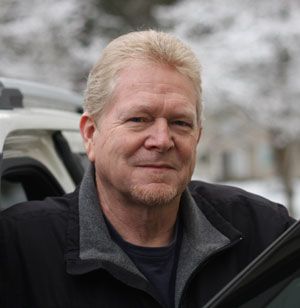Redundant but worthy
In life, certain advice bears repeating. Worthy reminders like “keep a positive attitude” and “drink plenty of fluids” are gems we hear often. In driving, there are plenty of such reminders that we should repeat and heed.
I regularly recommend noting other drivers’ mistakes in as learning tools to help you avoid making your own errors. One of those errors is common and signifies a caution I’ve previously given, but bears reiteration. That caution is: When a vehicle ahead of you stops in the roadway, determine why they are stopped before blowing past them.
Here’s one reason why: While once walking, I arrived at an intersection and was met by three stopped cars evidently ready to yield for my crosswalk crossing. I know and remind others that drivers in adjacent lanes sometimes fail to stop, but this time I wasn’t ready for the second car in line to suddenly pull around and pass the leading stopped car using the two-way left turn lane. That happened about as I was in the offender’s improper path. The subsequent driver’s panic stop averted disaster, but a heavier foot on the gas or a lighter foot on the brake could easily have been a hit.
Another disruption recently took place on the freeway. The redundant-but-worthy advice: Don’t drive while talking on the cell phone; such effective multi-tasking is a myth.
During dense commute-hour traffic, I was in a pack of vehicles travelling 65 mph. Very suddenly, the vehicle in front of me slowed to under 50 mph, causing surrounding vehicles to brake, scan for emergencies and attempt lane changes. When we had an opening to change lanes and pass the culprit, the cause was evident — a cell phone at the driver’s ear. It must have rung and of course she needed to endanger others to take the call.
Now that spring and summer celebrations are upon us, another apropos statement deserves echoing: Don’t drink and drive. Life preservation for yourself and others should serve as motivation, but other factors are in play.
Those factors include license suspension, jail time, vehicle impound, and thousands in fines and fees. You may be court-ordered to pay for and install an ignition interlock that won’t allow your car to start if you have any alcohol in your system. Additionally offenders might be required to pay for and attend alcohol or drug treatment. In Washington alone, law enforcement officers make more than 40,000 DUI arrests annually.
Another old-but-worthwhile warning: Don’t drive too fast. This includes adjusting to conditions — even in the spring, rain can put vehicles in “hydroplane” mode.
I contend that good driving is not difficult to achieve, but does require devoting all of your attention and effort toward the task. Please, especially during this season fraught with potential distraction, practice due devotion while taking the wheel. Be vigilant, put the phone aside, drink responsibly, watch your speed and be watchfully tolerant of errors by other drivers. Bad drivers are always around, and it’s up to good drivers to drive both for themselves and for the bad ones.
The list of driving messages goes on and on. Look far ahead, don’t tailgate, give trucks extra room, use seatbelts, et cetera — they are all part of an endless list that I will rerun as long as merited. Given the existing driver failure results, that will be forever.
Readers may contact Bill Love via e-mail at precisiondriving@spokesman.com.
